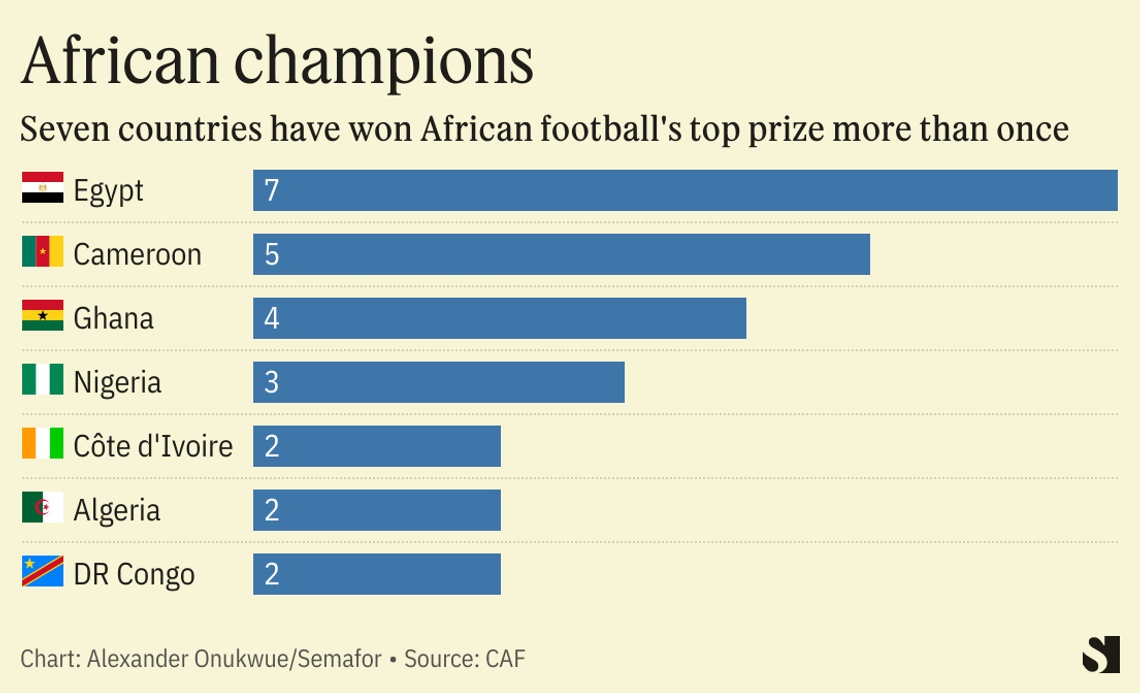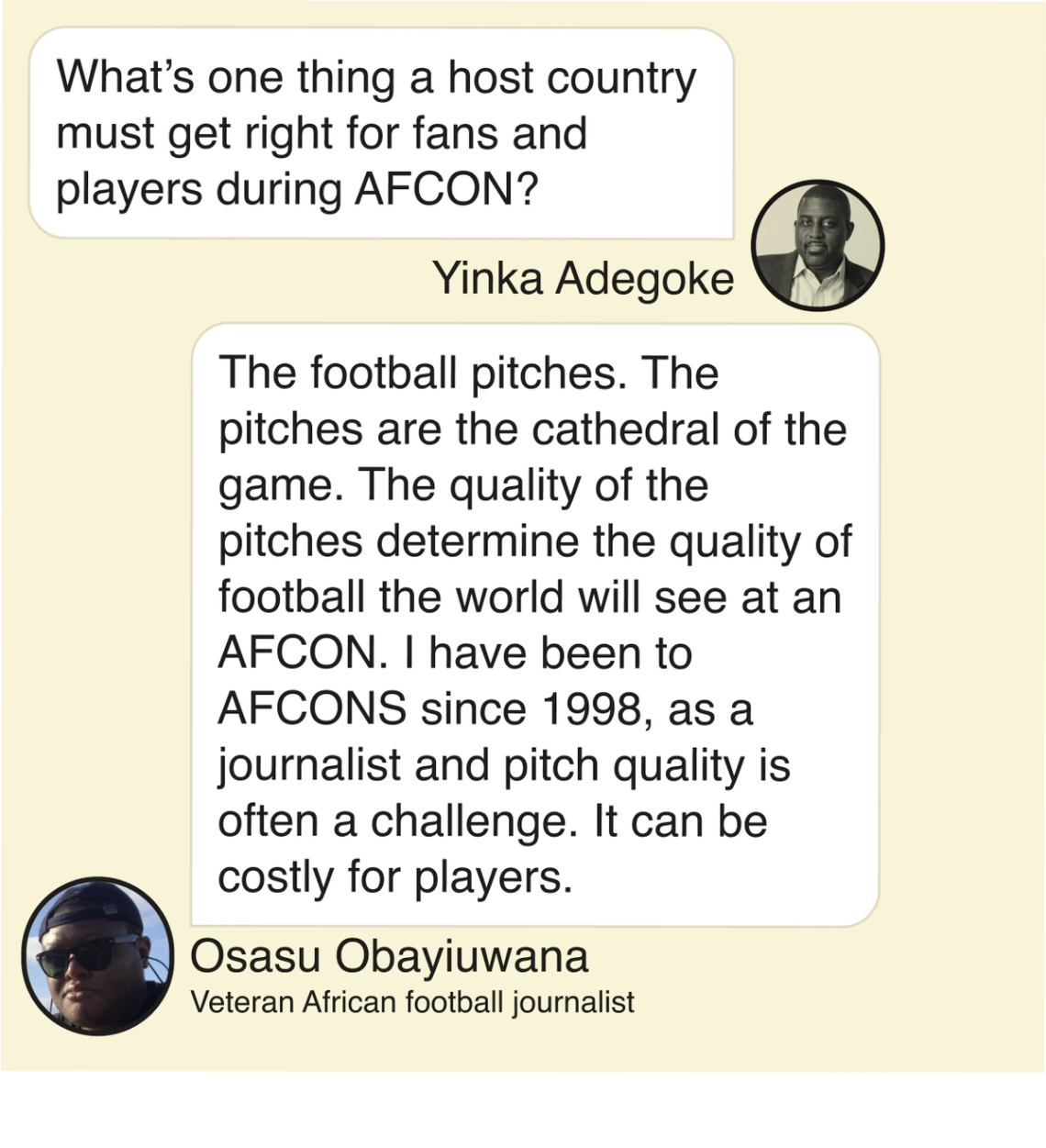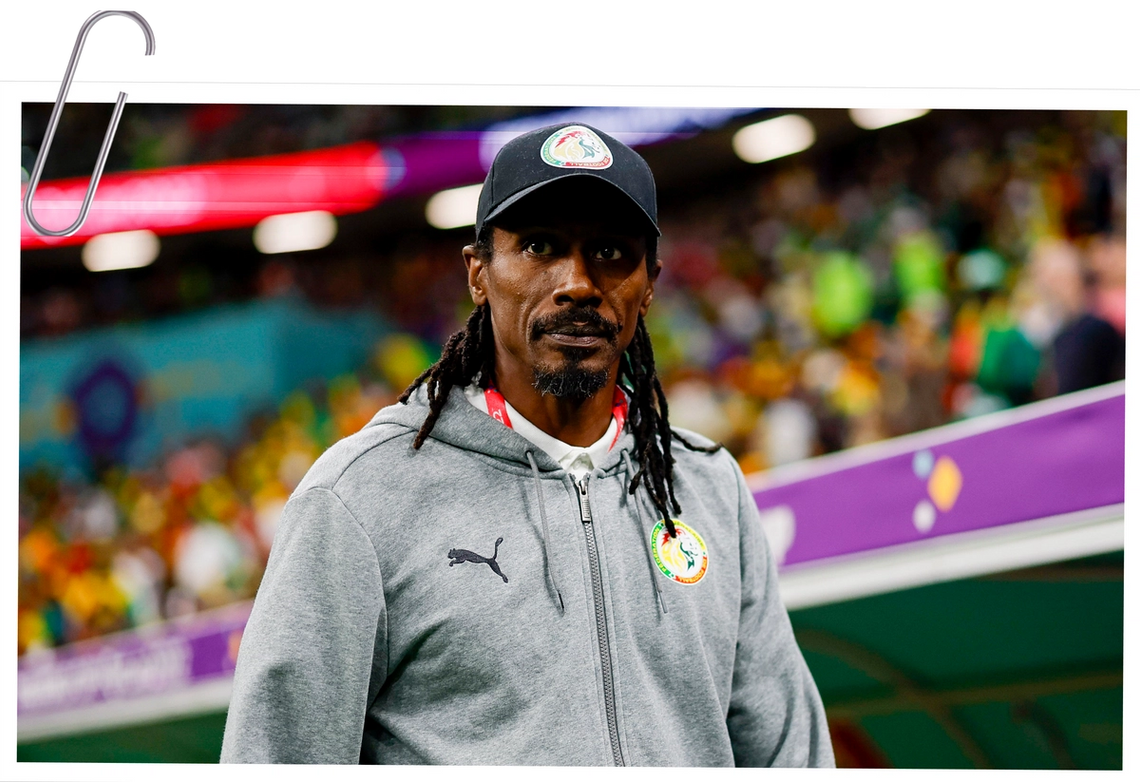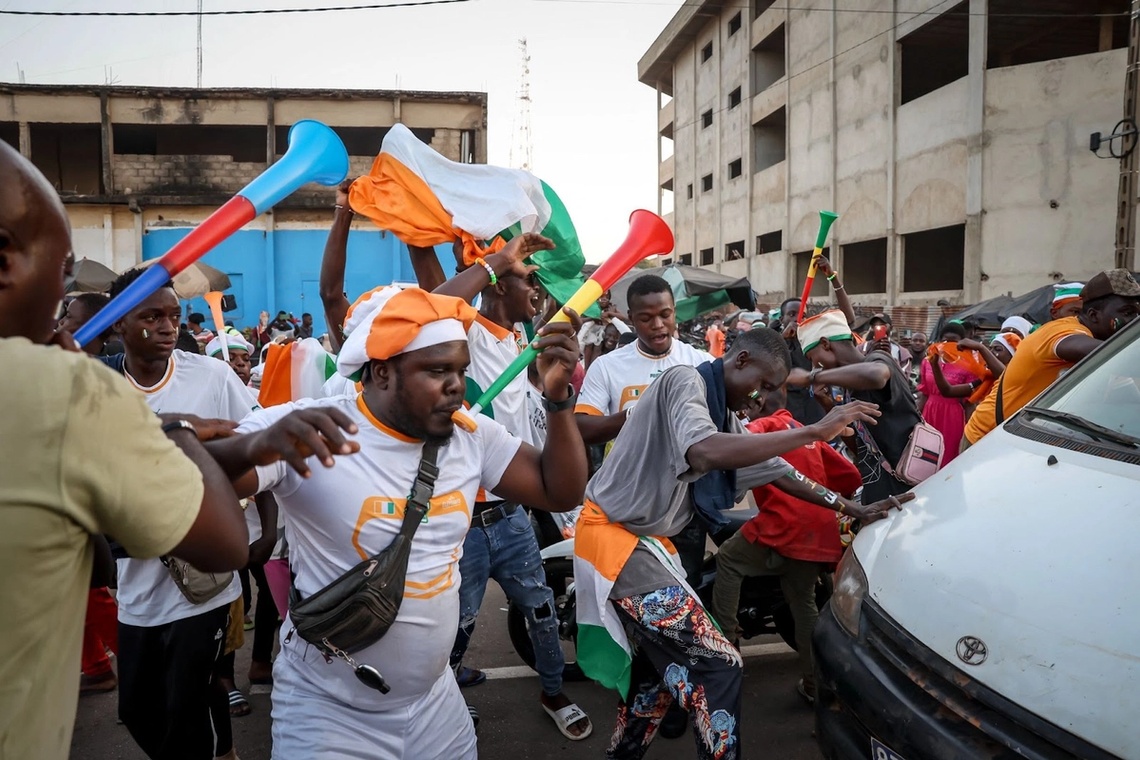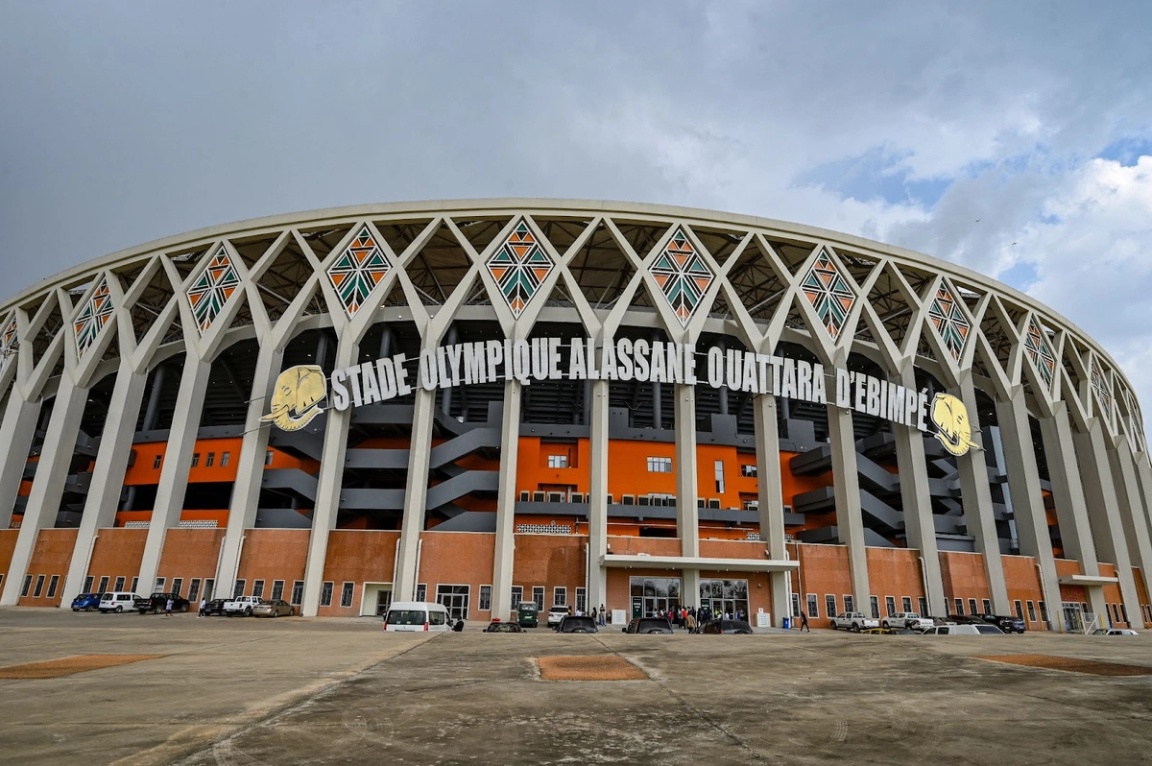 Sia Kambou/AFP via Getty Images Sia Kambou/AFP via Getty ImagesOn Saturday, AFCON kicked off between hosts Côte d’Ivoire and Guinea Bissau at the 60,000-capacity Alassane Ouatarra stadium in Abidjan. Opened in 2020, the stadium is one of six venues hosting AFCON matches. It also happens to be among three AFCON venues built with Chinese support. The Alassane Ouattara stadium, also known as the Olympic Stadium of Ebimpé, was designed and built by two Chinese state entities — the Beijing Institute of Architectural Design and the Beijing Construction Engineering Group respectively. The 20,000-capacity Laurent Pokou Stadium in San-Pédro, in southwestern Côte d’Ivoire, was built by the China Civil Engineering Construction Corporation. And China National Building Material Group was the general contractor for the 20,000-capacity Amadou Gon Coulibaly Stadium in Korhogo, in the north of the country, which will host Group D matches. China has supported the construction of stadiums used in previous AFCON editions including Angola in 2010, Gabon and Equatorial Guinea between 2012 and 2017. African leaders typically seek Chinese support on stadium construction in hopes of accelerating the development of sports infrastructure in their countries and to enable them to host major sporting events including AFCON. Their aim is to boost their profiles while also endearing themselves to football-loving citizens. There is also the expectation that local infrastructure built for tournaments such as the road networks connecting the stadiums to the cities will positively impact communities and economies long after the tournaments are done. Côte d’Ivoire, for instance, has spent more than $1 billion on the continental showpiece, according to reported estimates, with Ebimpé alone costing comfortably over $250 million. Justifying the investment, Francois Amichia, head of the country’s Nations Cup organizing committee, said that among the benefits was “repositioning” Côte d’Ivoire, which has been steadily rebuilding its economy since the end of the 2011 civil war. — Martin K. N. Siele | 


